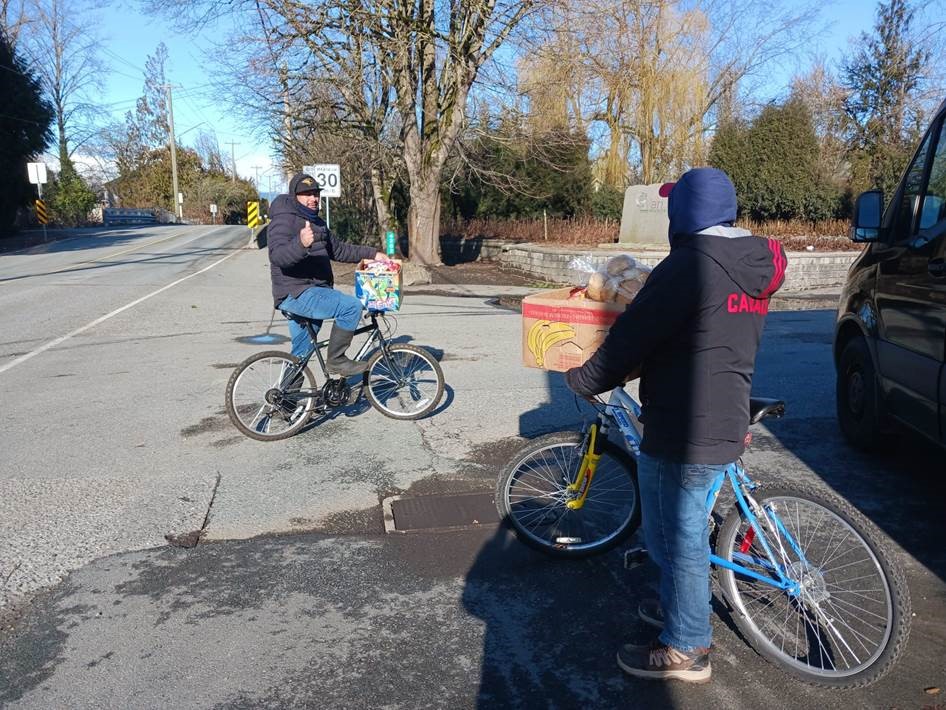
Creating mental health supports for agricultural migrant workers during the COVID-19 pandemic
Watari Counselling and Support Services Society is connecting isolated agricultural migrant workers with counsellors and dismantling barriers to accessing mental health care
Overview:
Grant: $50,000-70,000
Year: 2021
Organization: Watari Counselling and Support Services Society
The onset of the COVID-19 pandemic put a strain on many people’s mental health, including agricultural migrant workers. The impacts of the pandemic ultimately revealed their limited access to support or resources, which created severe mental health challenges.
Early in the pandemic, migrant workers arriving to Canada were isolated in hotels to prevent the spread of COVID-19.
“For them, that was really hard,” says Ingrid Mendez, the Executive Director at Watari Counselling and Support Services Society. “For one, because they didn’t know what was going on, but also they had just left their families, just left all of their lives behind.” With few or no relationships in Canada and no opportunities to build new ones, workers were left completely isolated. There were no supports in place to address the toll that entering a new country, experiencing racism or discrimination as a newcomer, trying to understand the pandemic and processing news of the deaths of loved ones back home due to COVID-19 would have on their mental health.
“The team from Vancouver Coastal Health who was working with them at the hotels started saying, ‘Is there any way you can help?’” says Mendez. That’s when Watari applied for a Vancouver Foundation grant to provide counselling services to the isolated workers.
Barriers to accessing mental health care
“For agricultural migrant workers, it’s kind of hard to relate to counselling. It’s not a concept that all of them know or have heard of,” says Mendez. Many workers come from places where talking about mental health and accessing mental health supports has been heavily stigmatized. “For people to reach out and to say, ‘I need a counsellor,’ it takes courage,” says Mendez. “And then, once they want to do it, there are no resources.”
Before Watari stepped in, there were few mental health supports available in the languages migrant workers speak. And even if workers were able to locate services, the high-pressure work environments that many migrant workers experience—which can sometimes be emotionally and physically abusive—would leave them with little time for accessing these services. In some cases, workers feared that speaking out about mental health could put their jobs at risk.
Building support systems
“We moved in with a team of counsellors who spoke Spanish, Hindi, Punjabi, and Vietnamese,” says Mendez. Staff at Watari ensured that workers were able to access phones and Wi-Fi to connect with counsellors while in isolation and made sure that counsellors were available to meet outside of regular work hours. “We see workers on days and times that are convenient for them and not convenient for us,” says Mendez. For Watari, prioritizing workers’ needs and meeting them where they are at is vital to addressing and dismantling the barriers workers face in accessing care.
Once workers began talking to the counsellors and sharing their experiences, it became clear that counselling could make a difference in the lives of agricultural migrant workers. “What we saw was an amazing transformation,” says Mendez. Some workers asked for help connecting their families back home with counsellors, while others wanted to keep in touch with their counsellors long after their isolation periods were over. Aside from counselling, staff at Watari have also connected workers with other resources, including food, vaccinations, and information about the COVID-19 pandemic. This initiative, which is ongoing, has supported over 150 workers so far.
Status for all
“It’s important for people to know that the food we eat is produced by these workers,” says Mendez. “And they are producing this food under difficult, hard-to-live-in conditions that almost no other worker in Canada puts up with.”
One movement which has emerged to address the issues faced by migrant workers is Status for All, which suggests that granting permanent resident status to migrant workers is a necessary step in preventing exploitation and abuse, and valuing migrant workers’ contributions to our society.
“It’s important to remember that many of these workers left their families behind in order to come here and produce this food,” says Mendez. “So if we value this food, how do we value the workers who are producing it?”

